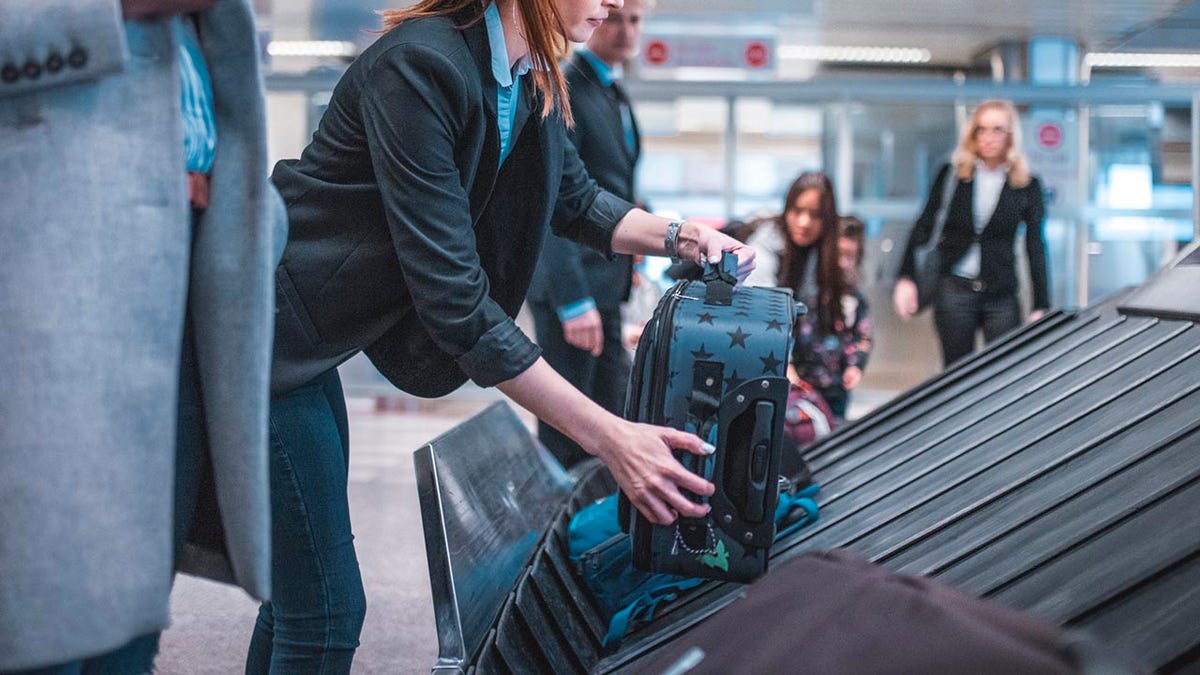Effects of inflation reach regional airports and foreshadow difficulties for summer air travel
Fox News’ Bryan Llenas unpacks costs of inflation on airlines, travelers as regional airports face service cuts.
Air travel saw an increase in 2021.
The same is true for mishandled luggage.
The leading multinational information technology company for the air travel industry, SITA — also known as Société Internationale de Télécommunications Aéronautiques — published a Baggage IT Insights report for 2022. It theorized that the potential rise in mishandled luggage could be related to staffing shortages at airports.
SITA, which provides air travel analytics to more than 2,500 aviation customers, including airports, airlines and government agencies, said there were 2.28 billion passengers who took flights in 2021.
THIS TRAVEL HACK REVEALS HOW TO GET A 'WHOLE ROW TO YOURSELF' ON FLIGHTS
During that period, the global mishandled baggage rate increased by 24% to an approximate 4.35 mishandled bags per 1,000 passengers.
International flights had a higher mishandling rate of 8.7 bags per 1,000 passengers, while domestic flights had a much lower mishandling rate of 1.85 per 1,000 passengers.

In 2021, there were 2.28 billion airline passengers, according to travel data from SITA. That number represents a 26.9% increase from the number of airline passengers the company analyzed in 2020. (iStock)
"Airlines, ground handlers and airports have downsized to maintain business viability during the pandemic, which has impacted resources and expertise dedicated to baggage management," said SITA CEO David Lavorel in a statement.
"Unaddressed, this challenge may see the mishandling rate continue to creep up and become much higher than it was pre-pandemic."
Lavorel continued, "The industry now needs to do more with less. As we emerge from the pandemic, the industry's focus remains on safely managing the end-to-end handling of passengers' baggage — but now it must also reduce the total cost and training required."
Of those bags that were mishandled in 2021, SITA’s report said 71% were delayed, 23% were damaged or pilfered — and 6% were lost or stolen.

Seven out of 10 mishandled bags in 2021 were delayed, according to SITA. (iStock)
The top seven reasons for delayed bags were transfer mishandling (41%); ticketing errors, bag switches and security holdups (18%); failure to load (18%); issues with airports, customs, weather and space-weight restrictions (8%); tagging errors (6%); arrival mishandling (5%); and loading errors (4%).
Airlines are usually liable for damaged, delayed and lost baggage, according to the U.S. Department of Transportation.
SITA’s updated Baggage IT Insights report suggests that investments in automation and technology can help minimize mishandled luggage, including computerized baggage tag readers, digital check-ins and baggage drops, self-service opportunities and end-to-end tracking and reconciliation programs that match bags to passengers in zones where mishandling risks are highest.
FLIGHT ATTENDANT REVEALS HOW PASSENGERS HAVE SCORED FREE, FIRST-CLASS SEATS
Airlines are usually liable for damaged, delayed and lost baggage, according to the U.S. Department of Transportation.

About 41% of delayed bags in 2021 happened due to transfer mishandling, according to SITA. (iStock)
The government agency’s Aviation Consumer Protection webpage states that airlines that are responsible for mishandling baggage are required to compensate passengers for repairs or reimbursements.
They're also required to pay for incidental expenses related to delayed baggage and locate or pay for lost baggage. Some exclusions may apply.
CLICK HERE TO GET THE FOX NEWS APP
In some instances, baggage could be damaged or lost through the TSA screening process.
The TSA says passengers whose property is damaged through screening can file a claim if compensation is necessary.

